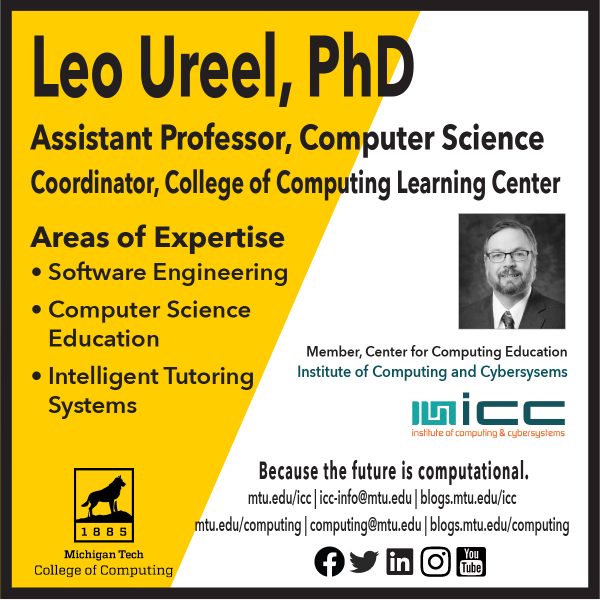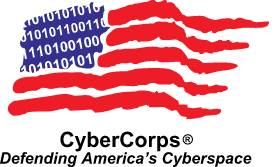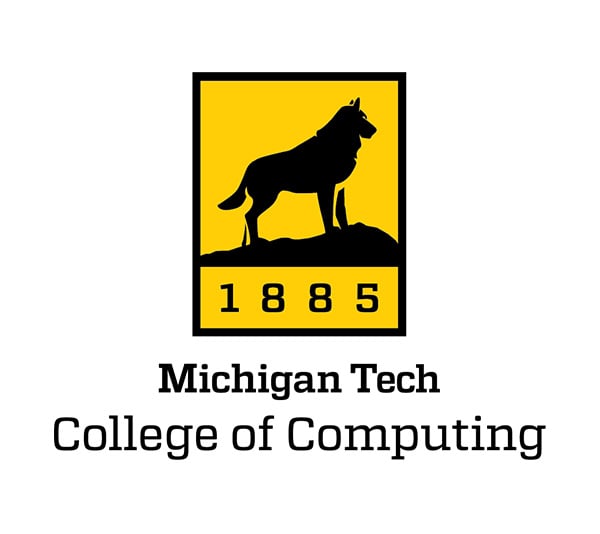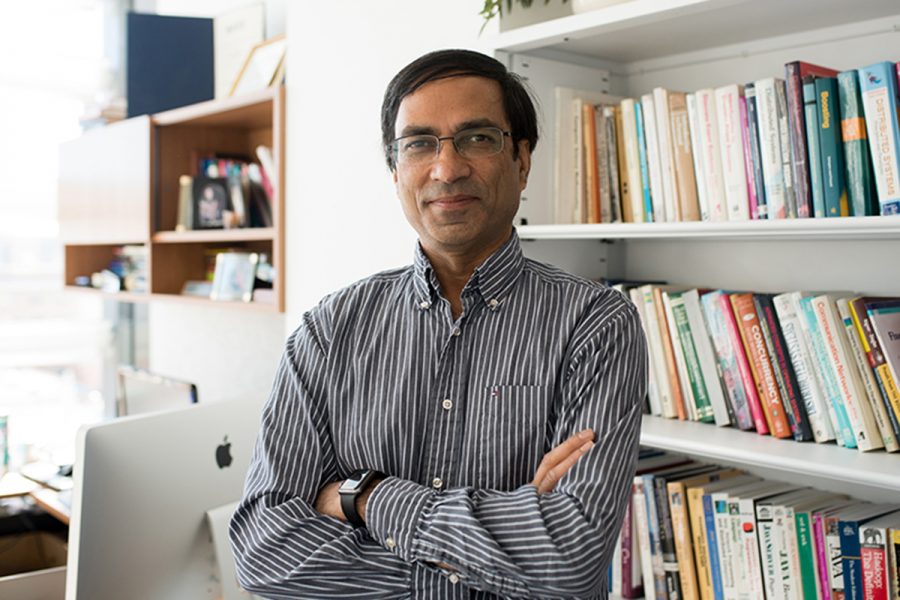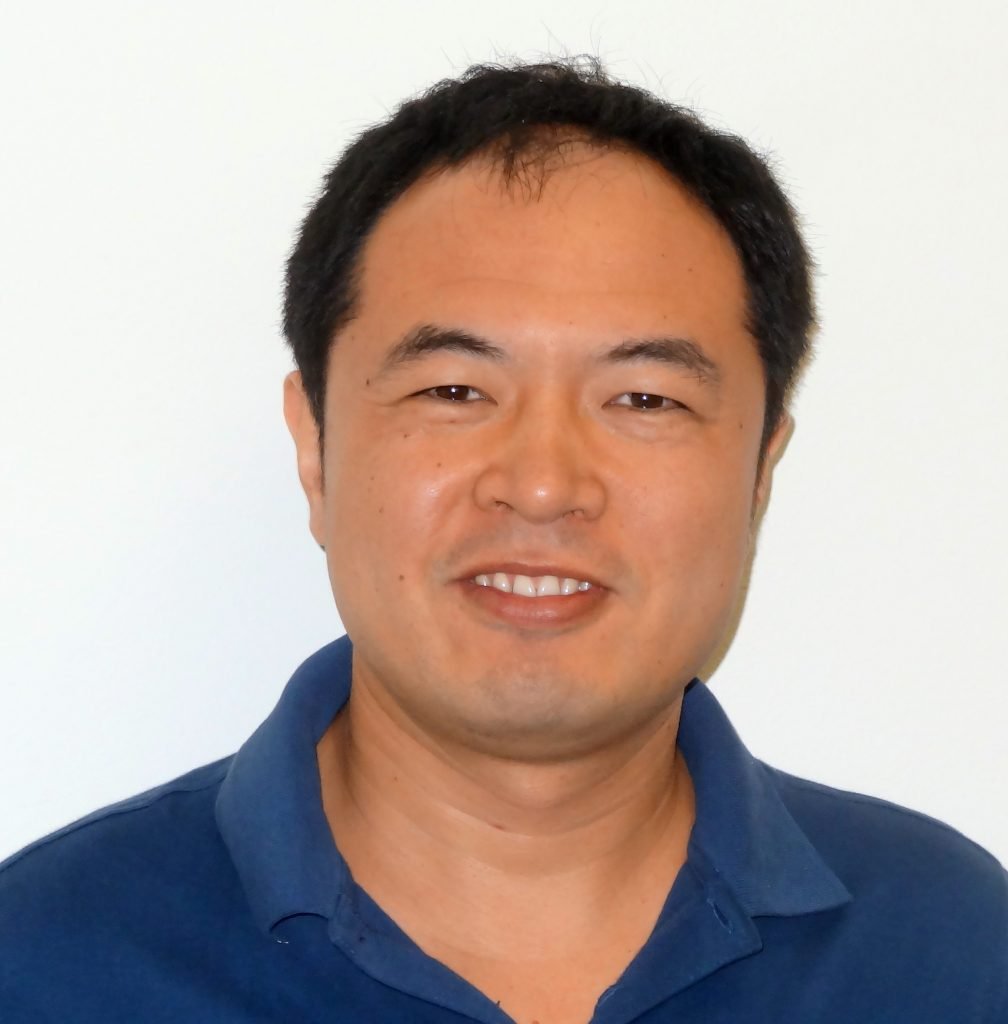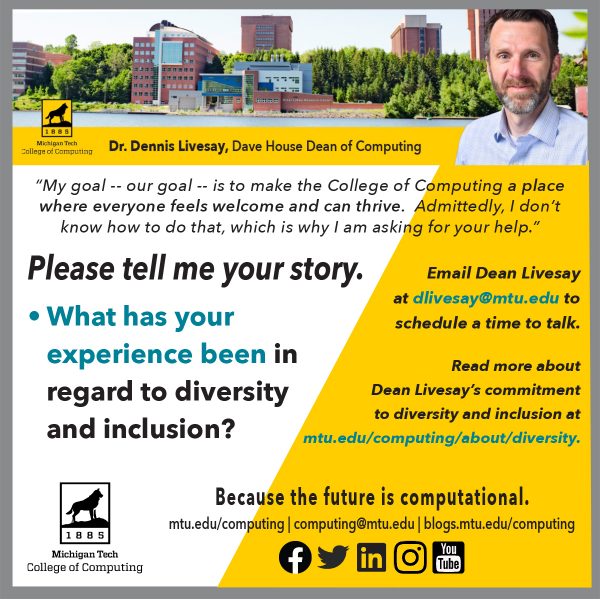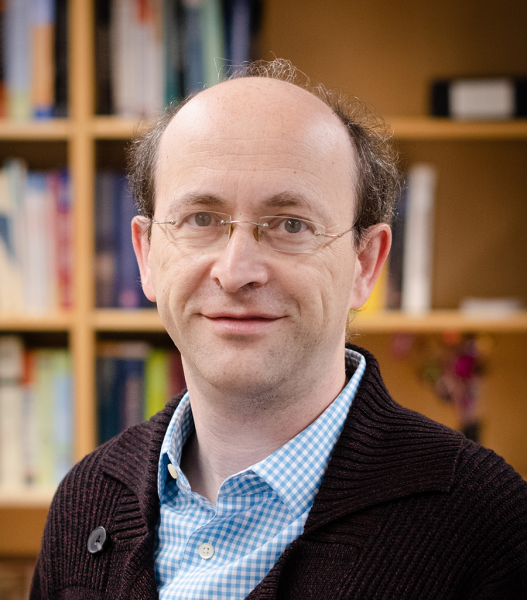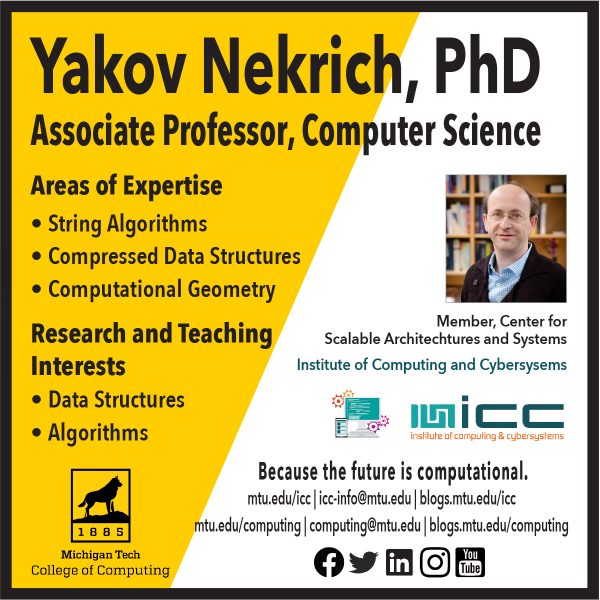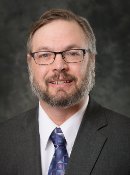
The 2020-2021 CTL Instructional Award for Innovative or Out of Class Teaching is being presented to two instructors, and Assistant Professor Leo Ureel, Computer Science, and Libby Meyer, senior lecturer, Visual and Performing Arts.
Ureel was nominated in recognition of his “student-centric efforts which have increased retention and diversified the cohort of first-year computing students.”
Ureel’s presentation, “Three course innovations to support communication,” will be presented at 3:30 p.m. on Thursday, February 18, 2021, as part of the CTL Instructional Award Presentation Series.
Link here to register for the event.
Ureel is a member of the Institute of Computing and Cybersystems’s (ICC) Computing Education Center.
Meyer’s presentation, “Beyond Carrots and Sticks: Mastery Based Grading and Narrative Assessment” will also be presented on February 18.
During spring 2017, academic deans were asked to begin recognizing instructors making contributions in these areas as part of the Deans’ Teaching Showcase, effectively nominating them for instructional awards.
CTL and Provost’s office members along with previous awardees then select one individual in each category from a pool composed of the Showcase and those nominated to the Academy of Teaching Excellence.
Ureel Lecture Abstract
Three course innovations to support communication Introductory courses present many communication challenges between faculty and first year students. In this context, we discuss three innovations used in our introductory computer science courses.
The first is the use of Snap, a high-level, visual programming language, as a form of pseudocode during the first five weeks of the course to build student vocabulary and problem solving skills before tackling programming in Java.
The second is a Code Critiquer developed as a Canvas plugin to provide immediate guidance and feedback to students when they submit their programming assignments.
The third is a grade visualization tool that helps students understand their current performance in the course and project a range that will contain their final grade. While not everyone teaches introductory computer science, we discuss how these or similar innovations and tools might apply to your course.
